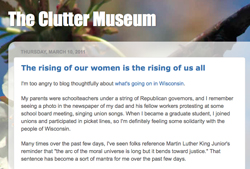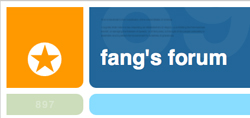I was just reading about how young Assistant Professor Newt Gingrich was booted from his History department and dumped unceremoniously on Geography because he was thinking too much about the future for a professor of history. I fear I may be coming across as a bit Gingrinchy this week, as I just realized it’s only Wednesday and I’ve already written three mini-rants about the future directions of the department and university.*
I’m going to share versions of them here, as each really raises more questions than it answers, and I know my wise and worldly readers may have some wisdom to share in the comments.
Rant the first: On teaching and learning with technology
A senior colleague said The Powers That Be were looking to completely remake the university’s ways of teaching undergraduates within six years, and that this revolution would be brought to us by online courses delivered (I suspect) through Everyone’s Favorite Learning Management System. Online courses, it was suggested, would automagically improve the university’s ridiculously dismal graduation rates.
I couldn’t help but put on my Critical Thinking Cap** and ask these questions:
*To be fair, all three were solicited, rather than imposed in a fit of manic delusion.
**Yes, humanists–even those of us with cultural studies degrees–do have access to such things.


I’m seeing very much the same thing. Our online learning office seems to assume that creating an online course involves uploading “content” (often from a textbook publisher or similar, but they’re also comfortable with the idea of lectures and/or powerpoints), or perhaps creating our own “content” for an online course that can then be taught be almost anybody for many, many semesters. On the other hand, the culture of the composition program in which I teach (and which has been one of the pioneers in creating online and hybrid classes in our university) is very much one of constant experimentation and tinkering. So far, we’ve just taught online and hybrid classes our way (which is to say, labor-intensive and ever-changing), but I gather we do get the occasional question from an administrator about whether they really have to be taught so inefficiently. Discussion boards and wikis and open-ended assignments are awfully messy and time-consuming. Some faculty in other departments seem pretty comfortable with the prepackaged-textbook approach (which may, in fact, work pretty well for some intro classes where learning facts is a big part of the purpose of the course — e.g. anatomy), but many, especially in the humanities, make it clear that they have no interest whatsoever in uploading prepackaged textbook quizzes and the like. The instructional designers, to be fair, seem quite willing to work with folks who want to do something more individualized, but the whole system seems to be set up to support a mass-produced rather than an individual-artisan approach.